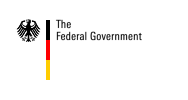In the lead up to the G8 Summit in Heiligendamm at the beginning of June, the German government aims to reach a consensus among the G8 states on combating product piracy.
Concerted action by state and industry
Both production of and demand for counterfeit or illegal copycat products must be targeted. This calls for action by the state and industry alike.
The German government and German industry have thus joined forces to develop a piracy prevention strategy which provides a clear set of measures that also serve as a model for replication.
Dialogue with emerging economies
At the G8 Summit, the German presidency will strive for improved dialogue with major emerging economies. Brazil, China, India, Mexico and South Africa will all be asked to play a greater role in combating product piracy.
Specific measures will also be discussed. These include the introduction of a new electronic information system for use by customs authorities.
Billions lost to piracy
Product piracy is by no means a minor offence. German industry alone suffers annual losses of around 25 billion euros to sales of copycat products. The global loss amounts to some 120 billion euros. In 2006, the German customs authorities confiscated counterfeit products worth over 1.1 billion euros – a clear rise compared with the figures for previous years.
But it is not just a matter of financial loss. Copycat products are often made from inferior quality materials: they meet neither the quality nor the safety standards that apply to the originals. This makes combating product piracy a consumer protection issue.
Copycat products also put jobs at risk. This is especially the case in knowledge-based societies like Germany.
